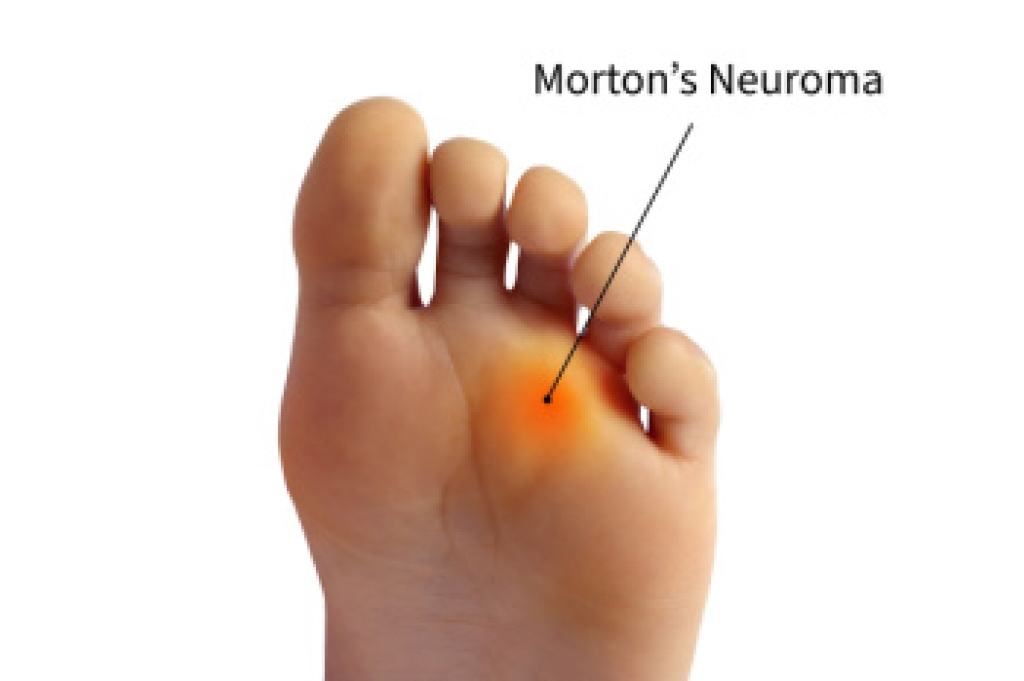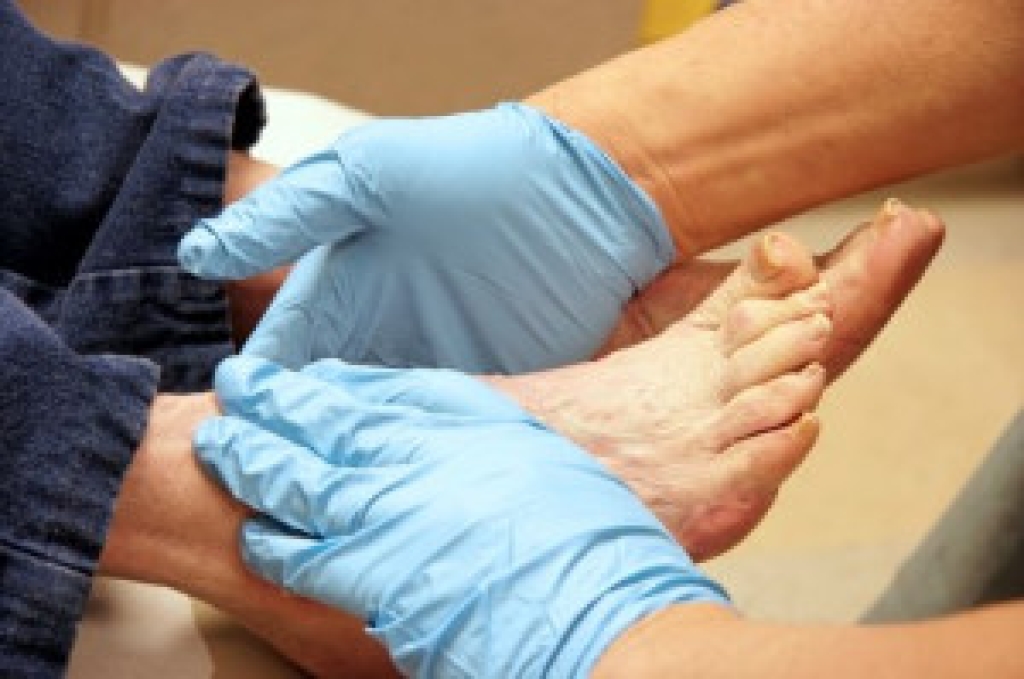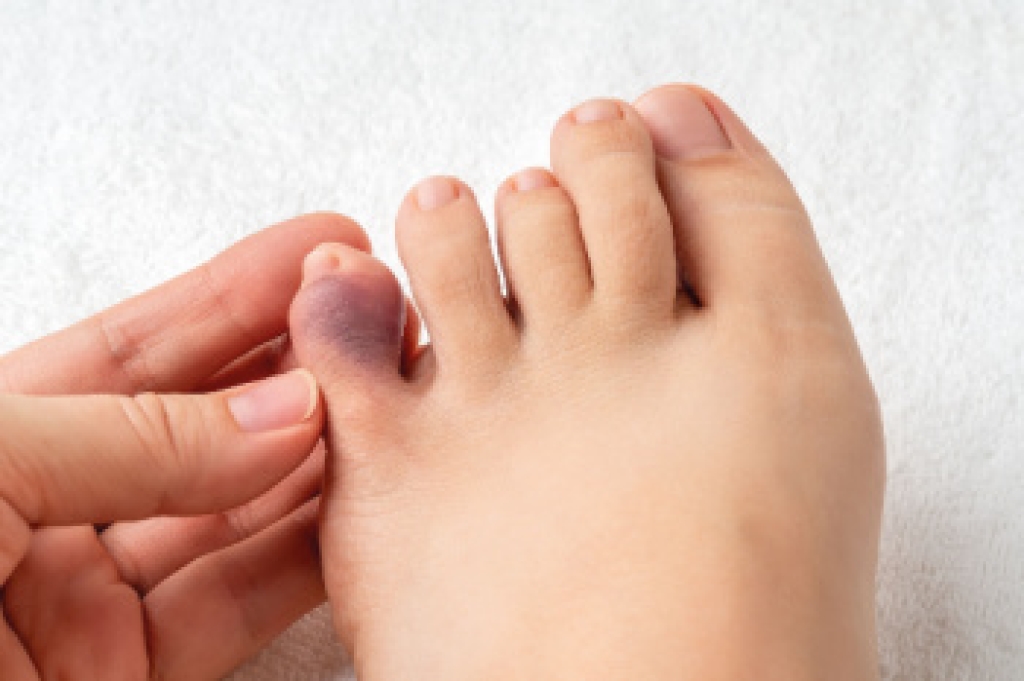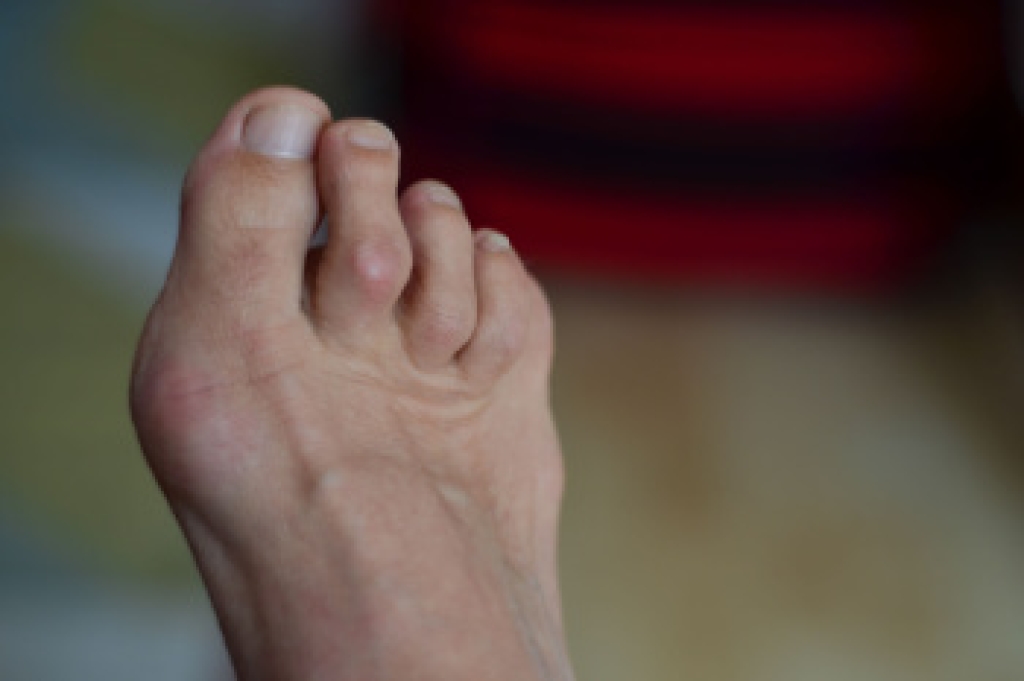
Morton’s neuroma is a painful condition involving irritation and thickening of a nerve in the foot, most often between the third and fourth toes. It is commonly caused by repetitive pressure from tight shoes, high heels, foot structure, or activities that place stress on the forefoot like running or jumping. Symptoms include burning pain, tingling, numbness, or the sensation of standing on a pebble. The foot may look normal from the outside, but it can feel quite painful, especially when walking or wearing narrow shoes. A podiatrist can help by beginning with a detailed history and physical examination, often supported by imaging to confirm the diagnosis. Treatment may progress to footwear changes, custom orthotics, anti-inflammatory care, and injection therapy when appropriate. Early treatment can reduce nerve irritation and prevent worsening symptoms. If you have Morton’s neuroma, it is suggested that you schedule an appointment with a podiatrist for appropriate treatment.
Morton’s neuroma is a very uncomfortable condition to live with. If you think you have Morton’s neuroma, contact Jennifer M. Kern, DPM of South Carolina. Our doctor will attend to all of your foot care needs and answer any of your related questions.
Morton’s Neuroma
Morton's neuroma is a painful foot condition that commonly affects the areas between the second and third or third and fourth toe, although other areas of the foot are also susceptible. Morton’s neuroma is caused by an inflamed nerve in the foot that is being squeezed and aggravated by surrounding bones.
What Increases the Chances of Having Morton’s Neuroma?
- Ill-fitting high heels or shoes that add pressure to the toe or foot
- Jogging, running or any sport that involves constant impact to the foot
- Flat feet, bunions, and any other foot deformities
Morton’s neuroma is a very treatable condition. Orthotics and shoe inserts can often be used to alleviate the pain on the forefront of the feet. In more severe cases, corticosteroids can also be prescribed. In order to figure out the best treatment for your neuroma, it’s recommended to seek the care of a podiatrist who can diagnose your condition and provide different treatment options.
If you have any questions, please feel free to contact our office located in West Columbia, SC . We offer the newest diagnostic and treatment technologies for all your foot care needs.







